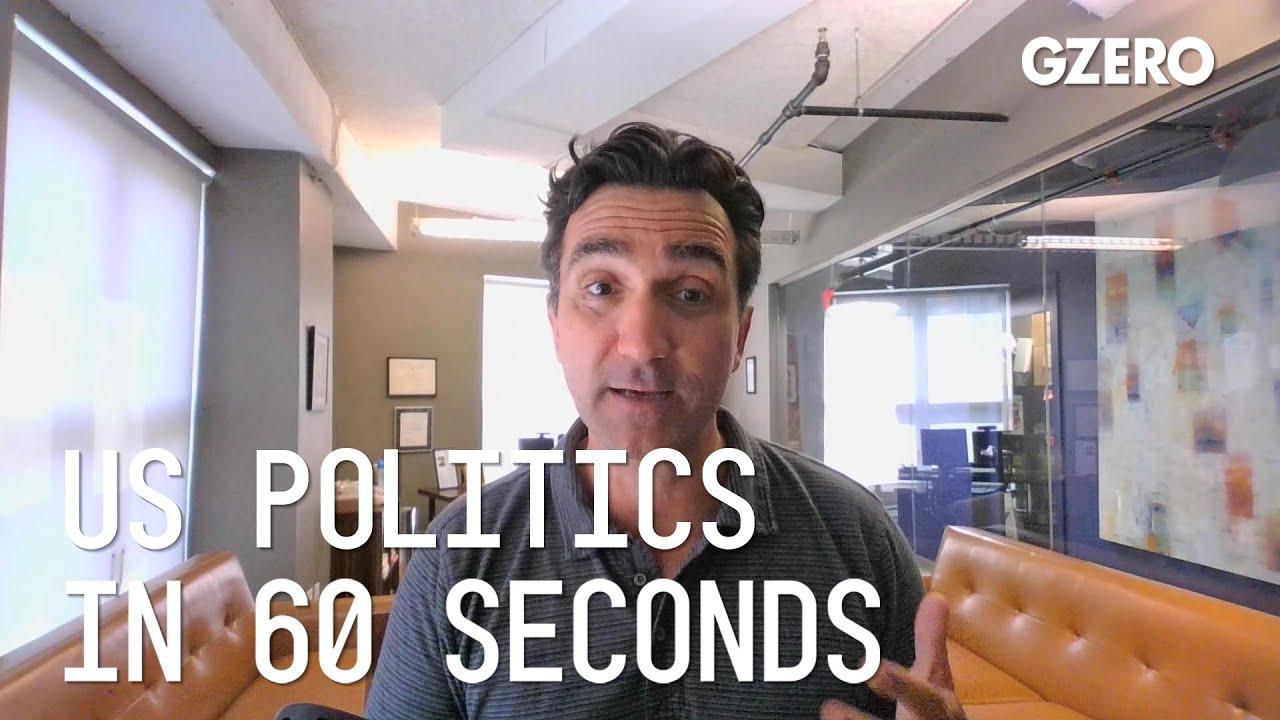US Politics In 60 Seconds
GOP battle with Big Tech reaches the Supreme Court

Tech Wars Have Just Begun | US Politics In :60 | GZERO Media

Jon Lieber, head of Eurasia Group's coverage of political and policy developments in Washington, discusses Republican states picking fights with social media companies.
Why are all these Republican states picking fights with social media companies?
The Supreme Court this week ruled that a Texas law that banned content moderation by social media companies should not go into effect while the lower courts debated its merits, blocking the latest effort by Republican-led states to try and push back on the power of Big Tech. Florida and Texas are two of the large states that have recently passed laws that would prevent large social media companies from censoring or de-platforming accounts that they think are controversial, which they say is essential for keeping their users safe from abuse and misinformation. The courts did not agree on the constitutionality of this question. One circuit court found that the Florida law probably infringes on the free speech rights of the tech companies.
Yes, companies do have free speech rights under the US constitution while a different circuit court said that the state of Texas did have the ability to dictate how these firms choose how to moderate their platforms. These questions will likely eventually be settled by the Supreme Court who are going to be asked to weigh in on the constitutionality of these laws and if they conflict with the provision of federal law that protects the platforms from liability for content moderation, known as Section 230. But the issue is also likely to escalate once Republicans take control of the House of Representatives next year. These anti-Big Tech laws are part of a broader conservative pushback against American companies who Republicans think have become too left-leaning and way too involved in the political culture wars, most frequently on the side of liberal causes.
And states are taking the lead because of congressional inertia. Democrats are looking at ways to break up the concentrated power of these companies, but lack a path towards a majority for any of the proposals that they've put forward so far this year. Social media, in particular, is in the spotlight because Twitter and Facebook continue to ban the account of former president Donald Trump. And because right-leaning celebrities keep getting de-platformed for what the platforms consider COVID disinformation and lies about the 2020 election.
But recent trends strongly suggest that when Republicans are in charge, they're likely to push federal legislation that will directly challenge the platform's ability to control what Americans see in their social media feeds, a sign that the tech wars have just begun.
In this Quick Take, Ian Bremmer weighs in on the politicization of the Olympics after comments by Team USA freestyle skier Hunter Hess sparked backlash about patriotism and national representation.
100 million: The number of people expected to watch the Super Bowl halftime performance with Bad Bunny, the Puerto Rican superstar and newly minted Album of the Year winner at the Grammys.
Brazilian skiers, American ICE agents, Israeli bobsledders – this is just a smattering of the fascinating characters that will be present at this year’s Winter Olympics. Yet the focus will be a different country, one that isn’t formally competing: Russia.
Japanese Prime Minister Sanae Takaichi, president of the Liberal Democratic Party (LDP), appeals for a candidate during a street speech of the House of Representatives Election Campaign in Shintomi Town, Miyazaki Prefecture on February 6, 2026. The Lower House election will feature voting and counting on February 8th.
Japanese voters head to the polls on Sunday in a snap election for the national legislature’s lower house, called just three months into Prime Minister Sanae Takaichi’s tenure.